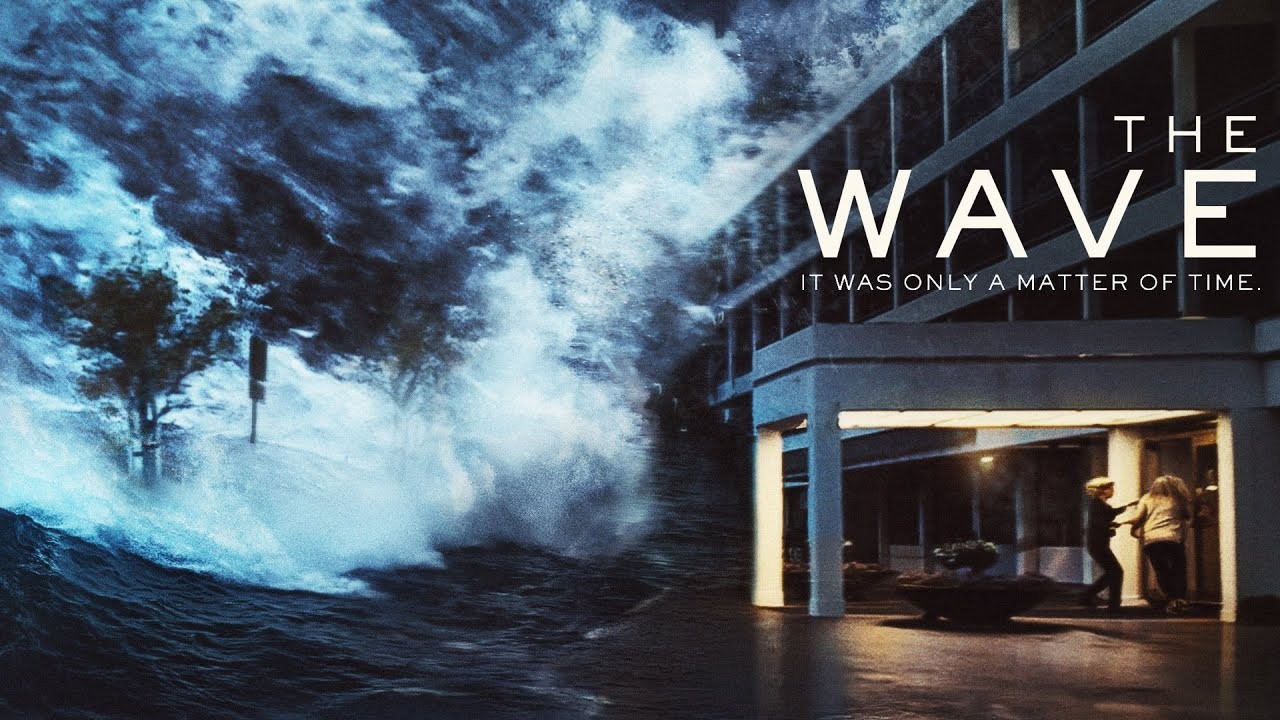The Wave (2015)

“The Wave” (original title: “Bølgen”), directed by Roar Uthaug and released in 2015, is a Norwegian disaster film that offers a gripping portrayal of nature’s power and the human spirit’s capacity to withstand and respond to calamity. Set against the backdrop of a picturesque fjord, the film combines suspenseful storytelling with a compelling examination of human resilience in the face of a natural disaster. With its blend of scientific accuracy and emotional depth, “The Wave” stands out as a noteworthy entry in the disaster genre.
“The Wave” centers around a geological disaster that threatens the lives of the residents of Geiranger, a small town in Norway. The narrative unfolds with a focus on Kristian Eikjord (played by Kristofer Hivju), a geologist who, along with his family, faces an impending catastrophe when the nearby Åkerneset mountain experiences a significant rockfall. This rockfall triggers a massive tsunami that is projected to hit the fjord within a short timeframe, endangering the lives of everyone in its path.
As the tsunami threat becomes increasingly imminent, Kristian and his family—his wife Idun (Ane Dahl Torp) and their two children, Sondre (Edith Nilsen) and Julia (Emma Bones)—must navigate the chaos and peril caused by the approaching wave. The film follows their desperate attempts to escape the impending disaster, highlighting both the immediate and long-term impacts of the event on their lives and relationships.

The central themes of “The Wave” include the power and unpredictability of nature, the fragility of human existence, and the resilience of individuals in the face of disaster. The film explores the interplay between scientific knowledge and human vulnerability, emphasizing the significance of preparedness and the emotional toll of such catastrophic events.
Kristofer Hivju delivers a strong performance as Kristian Eikjord, embodying the character’s mix of professional expertise and personal dedication. Hivju’s portrayal captures Kristian’s deep concern for his family and his commitment to ensuring their safety despite the overwhelming odds. The character’s dual role as a geologist and a father adds emotional weight to the narrative, making his struggle to protect his loved ones a focal point of the film.
Ane Dahl Torp’s role as Idun Eikjord provides a poignant counterbalance to Kristian’s character. Torp portrays Idun as a loving mother and wife, whose fear and determination are palpable throughout the film. Her performance highlights the emotional depth of the family dynamic, adding a layer of personal stakes to the disaster’s impact.

The supporting cast, including Emma Bones and Edith Nilsen as the Eikjord children, contributes to the film’s emotional resonance. Their performances effectively convey the sense of vulnerability and desperation experienced by the family as they confront the disaster.
Roar Uthaug’s direction in “The Wave” is marked by its ability to blend suspenseful storytelling with scientific accuracy. The film employs a mix of practical effects and CGI to create a realistic depiction of the tsunami and its destructive force. Uthaug’s use of intense close-ups and sweeping wide shots enhances the film’s tension and urgency, immersing viewers in the high-stakes scenario.
The cinematography, by John Andreas Andersen, captures both the beauty of the fjord landscape and the terrifying scale of the disaster. The film’s visual style contrasts the serene beauty of the setting with the overwhelming force of the tsunami, highlighting the destructive power of nature and the human struggle against it.
The score, composed by Magnus Beite, complements the film’s tone with a blend of dramatic and suspenseful music. The soundtrack’s orchestral compositions enhance the emotional and action-packed moments, reinforcing the film’s themes of urgency and resilience.

“The Wave” delves into the themes of nature’s power and human resilience, offering a nuanced portrayal of how individuals and communities respond to catastrophic events. The film emphasizes the unpredictable and uncontrollable nature of natural disasters, highlighting the importance of scientific research and preparedness in mitigating their impact.
The portrayal of the Eikjord family’s struggle underscores the emotional and psychological effects of disaster. The film captures the fear, desperation, and determination experienced by those facing such extreme circumstances, portraying the human spirit’s capacity to endure and adapt.
Additionally, “The Wave” explores the broader implications of living in a world where natural disasters are an ever-present threat. The film raises questions about the balance between human activities and environmental risks, and the ways in which societies can prepare for and respond to such events.
“The Wave” (2015) is a compelling disaster film that combines scientific realism with emotional depth to create a gripping narrative about nature’s power and human resilience. Through its strong performances, effective direction, and striking visuals, the film offers a powerful exploration of the impact of natural disasters on individuals and communities. Roar Uthaug’s direction and the cast’s performances bring to life a story that is both thrilling and thought-provoking, making “The Wave” a standout entry in the disaster genre and a poignant reminder of the fragility of human existence in the face of nature’s fury.











